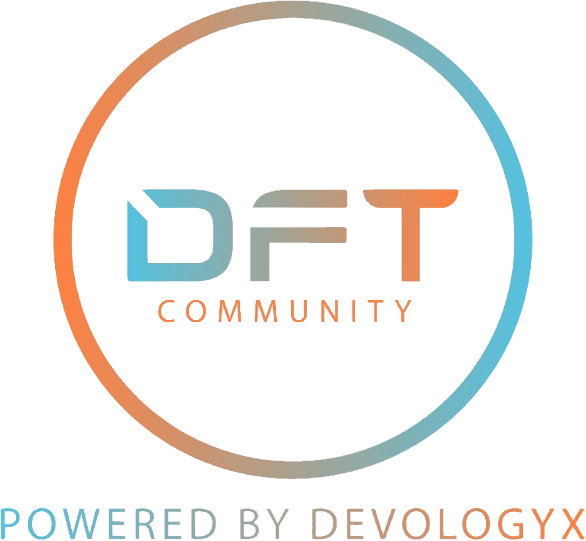Written by Greg Mckeown and published on 15th April 2014, Essentialism: The Disciplined Pursuit of Less is a systematic discipline for discerning what is essential and eliminating everything that is not, so we can make the highest possible contribution toward the things that matter.
HOW THIS BOOK HELPED US?
The book helped us understand that even small wins matter and are influential. Instead of trying to achieve it all at once, we should begin small and celebrate progress no matter how small it is. Essentialism also taught us that instead of looking for the most obvious or immediate obstacles, we should look for the ones that slow down progress and get in the way of accomplishing what is essential.
THE BOOK EXPLAINED WITHIN 60 SECONDS
Essentialism speaks to anyone who is constantly feeling overworked but underutilized or ever busy but never productive. The book offers a framework for discerning what is essential by eliminating what is not and removing obstacles to make executing what is essential as effortless as possible. The Disciplined Pursuit of Less allows you to channel your time, energy and effort toward making the highest potential contribution to what matters.
TOP THREE QUOTES
- “What if we stopped celebrating being busy as a measurement of importance? What if instead, we celebrated how much time we had spent listening, pondering, meditating, and enjoying time with the most important people in our lives?”
- “Essentialists see trade-offs as an inherent part of life, not an inherently negative part. Instead of asking, “What do I have to give up?” they ask, “What do I want to go big on?”
- “There should be no shame in admitting to a mistake; after all, we are only admitting that we are now wiser than we once were.”
BOOK SUMMARIES AND NOTES

Part one: Essence: What is the core mindset of an Essentialist
Essentialism is not a way to do one more thing; it is a different way of doing everything. It is a way of thinking. But internalising this way of thinking is not a neutral challenge. This is because specific ideas—and people peddling those ideas—constantly pull us toward the logic of Non-Essentialism. There are three deeply entrenched assumptions we must conquer to live the way of the Essentialist: “I have to,” “It’s all important,” and “I can do both.” Like mythological sirens, these assumptions are as dangerous as they are seductive. They draw us in and drown us in shallow waters.
Choose: The Invincible Power of Choice
We have overemphasised the external aspect of choices (our options) and underemphasised our internal ability to choose (our actions) for way too long. This is more than semantics. Think about it this way. Options (things) can be taken away, while our core ability to choose (free will) cannot be. When we surrender our ability to choose, something or someone else will step in to determine for us. While we may not always have control over our options, we always control how we choose among them. Your ability to choose cannot be removed from you or given away but can be forgotten. When you fail your ability to choose, you learn helplessness. Piece by piece, you allow your power to be taken away to a point where you become a function of someone else or your past choices. Yet choice is at the very core of what it means to be an Essentialist. Becoming an Essentialist requires a heightened awareness of our ability to choose. We need to recognise it as an invincible power, existing separate and distinct from any other thing, person, or force.
Discern: The Unimportance of Practically Everything
Many capable people are kept from getting to the next level of contribution because they can’t let go of the belief that everything is essential. But an Essentialist has learned to tell the difference between what is truly important and everything else. To practice this Essentialist skill, we can start at a superficial level. Once it becomes second nature for everyday decisions, we can begin to apply it to more significant and broader areas of our personal and professional lives. Mastering it fully will require a massive shift in thinking. But it can be done.
Trade-off: Which Problem Do I Want
You have to look at and analyse every opportunity and say, no … I’m sorry. I will not do a thousand different things that won’t contribute much to the end result I am trying to achieve. The reality is that saying yes to any opportunity, by definition, requires saying no to several others. We can try to avoid the reality of trade-offs, but we can’t escape them. Non Essentialists think they can do both and ask how they can do it. An essentialist asks which trade-off they want to make and what they can go big on. Trade-offs are not something to be ignored or decried. They are something to be embraced and made deliberately, strategically, and thoughtfully.
Favourite quote: Remember that if you don’t prioritise your life, someone else will.”

Part two: Explore: Discern the Vital Few From the Trivial Many
The gravitational pull of Non Essentialism can be so strong that it can be tempting to skip over or skim over this step. Yet this step, in itself, is essential to the disciplined pursuit of less. To discern what is necessary, we need space to think, time to look and listen, permission to play, wisdom to sleep, and the discipline to apply highly selective criteria to our choices. Essentialists spend as much time as possible exploring, listening, debating, questioning, and thinking. But their exploration is not an end in itself. The exploration aims to discern the vital few from the trivial many.
Escape: The Perk of Being Unavailable
We need space to escape to discern the essential few from the trivial many. Unfortunately, in this time-starved era, we don’t get that space by default—but by design. Before you can rate what is and isn’t essential, you must explore your options. As Nonessentialists automatically react to the latest idea and jump on the newest opportunity, Essentialists choose to create the space to explore and ponder. A non essentialist is busy doing to think about life well, as an essentialist creates space to escape and explore life. We all need space to run to discern the essential few from the trivial many.
Look: See What Really Matters
Being a journalist of your own life will force you to stop hyper-focusing on all the minor details and see the bigger picture. You can apply the skills of a journalist no matter what field you are in—you can even use them to your personal life. By training yourself to look for “the lead,” you will suddenly find yourself able to see what you have missed. You’ll be able to do more than simply see the dots of each day: you’ll also connect them to see the trends. Instead of just reacting to the facts, you’ll be able to focus on the more significant issues. Discerning what is essential to explore requires us to be disciplined in how we scan and filter all the competing and conflicting facts, options, and opinions constantly vying for our attention. Essentialists are potent observers and listeners. Knowing that the reality of trade-offs means they can’t possibly pay attention to everything, they listen deliberately for what is not being explicitly stated. They read between the lines. Non Essentialists listen too. But they listen to it while preparing to say something. They get distracted by extraneous noise. They hyperfocus on minor details.
Play: Embrace the Wisdom of Your Inner Child
Essentialist is aware that play is essential and sparks exploration, and non essentialist thinks of play as a trivial and unproductive waste of time. Play has the power to significantly improve everything from your health to relationships to education to organisations’ ability to innovate. Play leads to brain plasticity, adaptability and creativity. Noting fires up the human brain like play; it stimulates the part of the brain that does careful logical reasoning and carefree, unbound exploration. Play is an antidote to stress, which is critical because stress, as an enemy of productivity, can shut down our brain’s creative, inquisitive, and exploratory parts.
Sleep: Protect the Asset
The best asset we have for contributing to the world is ourselves. And if we don’t invest enough in ourselves, we damage every tool required to make our most significant contribution. One of the most common ways people—incredibly ambitious, successful people—damage this asset is through lack of sleep. So if “protecting the asset” is so important, why do we give up our precious rest so easily? For overachievers, part of the reason may be that they simply subscribe to the false belief, as I did, that if they sleep less, they will achieve more. Yet there are ample reasons to challenge this assumption, like the growing body of research demonstrating that a good night’s sleep makes us more productive, not less. A non essentialist thinks one hour of less sleep will generate more productivity and an essentialist knows one more hour of sleep equals higher productivity levels.
Favourite quote: “The best asset we have for making a contribution to the world is ourselves. If we underinvest in ourselves, and by that, I mean our minds, bodies, and spirits, we damage the tool we need to make our highest contribution.”

Part three: Eliminate: How can we cut out the trivial many
Clarify: One Decision That Makes a Thousand
When there is a lack of clarity, people waste time and energy on the trivial many. When they have sufficient levels of transparency, they are capable of more extraordinary breakthroughs and innovations—greater than people even realise they ought to have—in those areas that are genuinely vital. When there is a severe lack of clarity about what the team stands for and its goals and roles, people experience confusion, stress, and frustration. When there is a high level of transparency, the other hand, people thrive. An essential intent is both inspirational and concrete, both meaningful and measurable. Done right, an essential intent is one decision that settles one thousand later decisions. It’s like deciding to become a doctor instead of a lawyer. One strategic choice eliminates a universe of other options and maps a course for the next five, ten, or even twenty years of your life. Once the big decision is made, all subsequent decisions come into better focus.
Dare: The Power of a Graceful “No”
So why is it so hard in the moment to dare to choose what is essential over what is nonessential? One straightforward answer is we are unclear about what is essential. When this happens, we become defenceless. On the other hand, when we have solid internal clarity, it is almost as if we have a force field protecting us from the nonessentials coming at us from all directions. The right “no” spoken at the right time can change the course of history. An essentialist knows he can’t be popular with everyone all the time. Saying no respectfully, logically and gracefully can come at a short-term social cost. But part of living like an essentialist is realising that respect is far more valuable than popularity in the long run. One of the most fundamental skills of an essentialist is mastering saying no to things that don’t allow you to deliver your highest point of contribution.
Edit: The Invisible Art
Editing the strict elimination of the trivial, unimportant, or irrelevant—is an Essentialist craft. Editing aids the effortless execution of the Essentialist by removing anything distracting or unnecessary, or awkward. Of course, editing also involves making trade-offs. When editing the nonessentials out of your life, start with cutting out your options; get rid of options or activities that may be good or even good but gets in the way. Yes, making a choice to eliminate something good can be painful. But eventually, every cut produces joy—maybe not at the moment but afterwards, when we realise that every other moment we have gained can be spent on something better.
Favourite quote: “We have good reasons to fear saying no. We worry we’ll miss out on a great opportunity. We’re scared of rocking the boat, stirring things up, burning bridges. We can’t bear the thought of disappointing someone we respect and like. None of this makes us a bad people. It’s a natural part of being human. Yet as hard as it can be to say no to someone, failing to do so can cause us to miss out on something far more important.”
Part four: Execute: How Can We Make Doing the Few Things almost Effortless
Buffer—The Unfair Advantage
A non essentialist assumes the best case scenario will happen and forces execution at the last minute. An essentialist builds in a buffer for unexpected events and practices extreme and early preparation. Essentialists accept that they can not prepare for every situation since the future is unpredictable. So, they create buffers to reduce the friction caused by the unexpected.
Subtract: Bring Forth More by Removing Obstacles
While the Nonessentialist is busy applying more and more pressure and piling on more and more solutions, the Essentialist simply makes a one-time investment in removing obstacles. This approach goes beyond just solving problems; it’s a method of reducing your efforts to maximise your results. Nonessentialists pile on quick-fix solutions while essentialists eliminate obstacles to progress and bring forth more. “Produce more by removing more.” Often we don’t take the time to think about which efforts will produce results and which will not. But even when we do, it is easier to think of execution in terms of addition rather than subtraction. If we want to sell more products, then we get more salespeople. If we want to produce more output, then we ramp up production. There is clear evidence to support this approach. However, there is another way to think of improving results. Instead of focusing on the efforts and resources we need to add. The Essentialist focuses on the constraints or obstacles we need to remove.
Progress: The Power Of Small Things
The way of the Nonessentialist is to go big on everything: to try to do it all, have it all, fit it all in. The Nonessentialist operates under the false logic that the more he strives, the more he will achieve, but the reality is the more we reach for the stars, the harder it is to get ourselves off the ground. The way of the Essentialist is different. Instead of trying to accomplish it all at once and flaring out, the Essentialist starts small and celebrates progress. Instead of going for the big, flashy wins that don’t matter, the Essentialist pursues small, straightforward wins in essential areas.
Favourite quote: “Another way to think of improving results. Instead of focusing on the efforts and resources, we need to add, the Essentialist focuses on the constraints or obstacles we need to remove.”
HOW THIS BOOK CAN HELP SOFTWARE DEVELOPERS
“Essentialism: The Disciplined Pursuit of Less” by Greg McKeown is a book that can help software developers prioritise their work and focus on the most critical tasks. The book emphasises the importance of identifying the essential few things that genuinely matter and then eliminating the non-essential. By applying the principles of essentialism, software developers can avoid overcommitting, reduce stress and increase their productivity, ultimately leading to more meaningful and fulfilling work.


